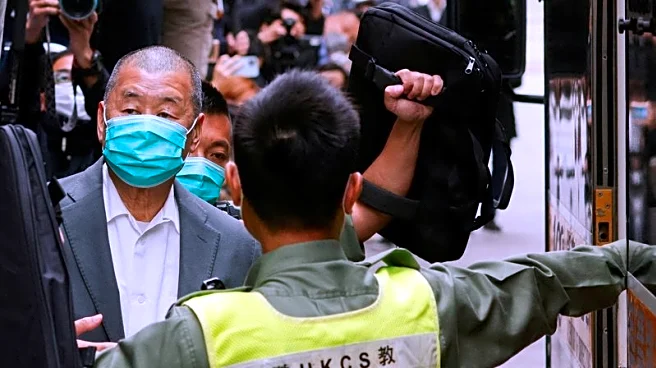Rapid Read • 8 min read
Trade lawyers are facing challenges as they guide clients through the complexities of shifting tariffs imposed by President Trump. These tariffs have created a murky economic landscape, prompting companies to reconsider their supply chains and production strategies. Joyce Adetutu, a partner at Vinson & Elkins, suggests that some clients should renegotiate or terminate long-term agreements with vendors and explore alternative supply chains. Meanwhile, Ken Rivlin from A&O Shearman emphasizes the importance of understanding supply chains to creatively manage them. Companies like Diamondback Energy and Molson Coors Beverage Co. are experiencing increased costs due to tariffs on steel and aluminum, affecting their profit forecasts. Despite these challenges, recent U.S. inflation data has eased concerns about tariffs causing price pressures.
AD
The shifting tariff landscape has significant implications for U.S. businesses, particularly those reliant on international supply chains. Companies are facing increased costs, which can impact their competitiveness and profitability. The tariffs have led to a reevaluation of supply chain strategies, with some businesses considering relocating operations to regions like Mexico, which benefit from tariff-free trade under the USMCA. This situation highlights the need for companies to be adaptable and strategic in their approach to international trade. The uncertainty surrounding the duration and impact of these tariffs further complicates decision-making for businesses and trade lawyers alike.
As companies navigate these tariffs, trade lawyers are advising a 'wait and see' approach due to the unpredictability of the situation. Businesses may need to consider long-term shifts in their operations, which could take years and substantial investment. The ongoing appeals court case regarding President Trump's authority to impose tariffs under emergency powers may also influence future tariff policies. Companies will continue to seek legal guidance on cost-sharing arrangements and contract adjustments to mitigate the financial impact of tariffs.
The tariff situation underscores broader issues in international trade, including the balance of power between nations and the role of trade agreements like the USMCA. It also raises questions about the ethical implications of shifting production to regions with lower tariffs, potentially affecting local economies and labor markets. The long-term impact on U.S. manufacturing and global supply chains remains uncertain, as businesses and policymakers grapple with these complex challenges.
AD
More Stories You Might Enjoy












